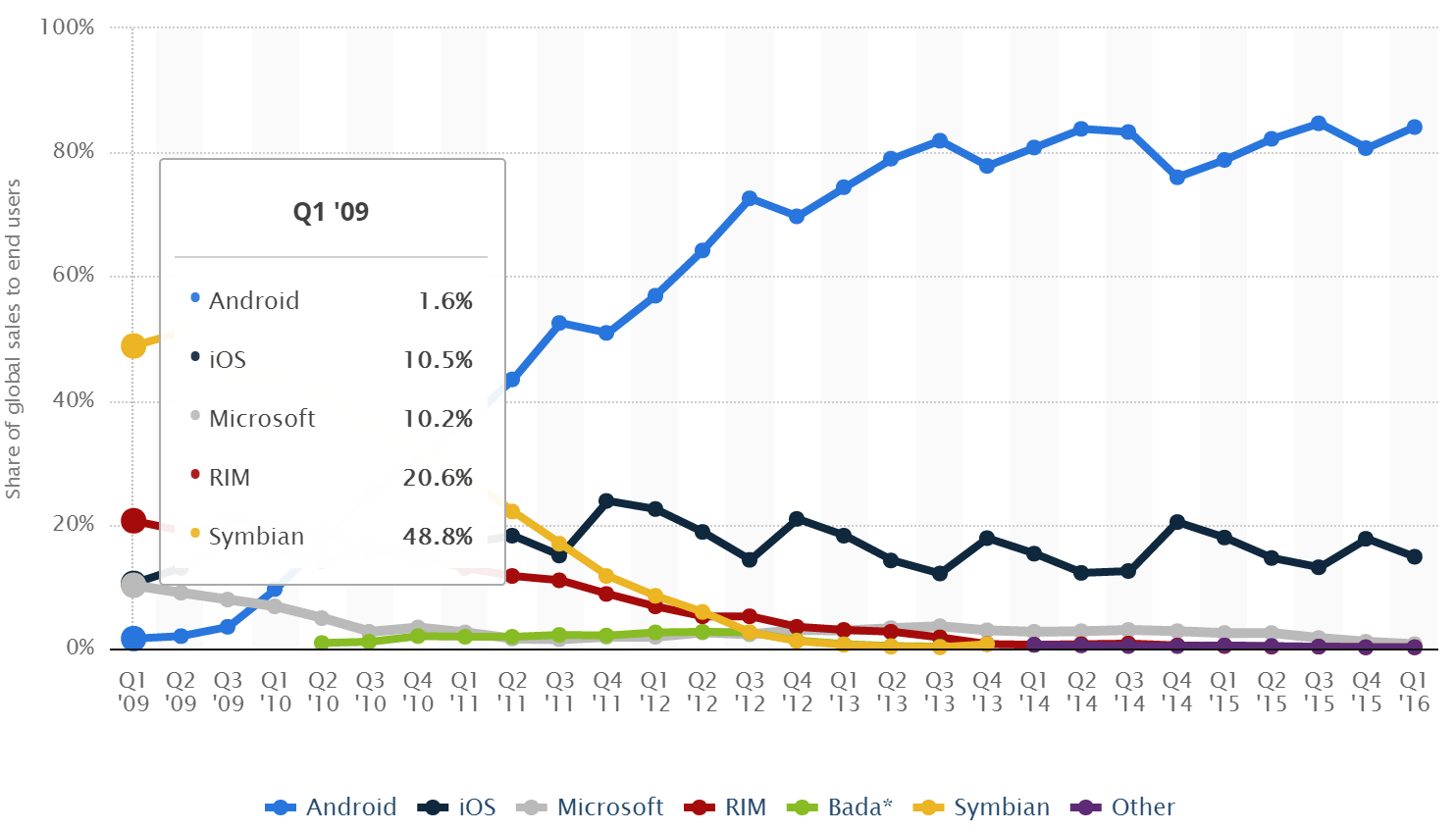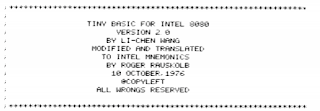Google Glass - New Reality Not for Crowd, Windows Mobile - Loss of Pocket PC, Chrome OS - Clean, Fast and Useless.
For my first topic I've choosen three great IT ideas, which were very promising in the beginning of their life, but disappointed me. The first one I was waiting as something, that could change our perception of reality, the second one could be as widespread as it's oldest relative, but went on bottom and took Pocket PC with it, and the third could be a good alternative to heavy Windows, expensive Mac OS (mostly due to the positioning of Apple) and complicated Linux.
I'd like to warn you, that this is my own opinion about every product in this topic and any future topics. I'll try to describe why I liked ideas and why I am sorry about their destiny.
GOOGLE GLASS. Do you all remember the year 2013? The spring, which promised us to delete the line between our smartphones with assistants, yet not good enough, and real world. The advertisement of the device, which was able to substitute the bricks in our hands and to let us see world not on the screen of gadget but through the screen, with tips about things that the see (like unknown piece of art or something else) and with tools of usual smartphone.
Developed by Google X facility (currently Alphabet X) and announced in year 2012, released as prototype in April 2013 for developers, in year 2014 for "anyone" (known as Explorer Edition), invention was buried for us in year 2015.
The high price of item (around 1500 USD), ugly design and unclear usability of such expensive glasses were the reasons of calm meeting after release. But the main failure of the Explorer Edition was in question of ethics and morality. This was the bottleneck for the technology. We weren't ready to share same area with guys with cameras in glasses, like as the film makers (as example) were afraid that the glasses could be used for piracy. We still not ready for this, therefore we won't see the project in real life soon. However, the reincarnated project for businesses only is alive again.
WINDOWS PHONE (ex. WINDOWS MOBILE). I remember the time when I was the proud owner of Sony Ericsson Xperia X1 with Windows Mobile 6.1 on board.
The real PC in my pocket. Voice commands, physical QWERTY keyboard, all required tools for my work those days and synchronisation between notebook and this small brick in my hand, as some kind of first ecosystem.
Despite of the disaster with Apple's Newton, the Pocket PC platform was alive through years thanks to Windows Mobile/Phone OS. With every new version, the OS was more finger friendly and user oriented, but still wasn't OEM oriented and hadn't gained enough popularity among developers . Strictly constrained compatibility with hardware and problems with adoption of updates for devices, made the device's life cycle a real headache for customers. As example, the lifespan of my X1, bought in early 2009, was 1 year. Due to problems in hardware compatibility, the Sony Ericcson company wasn't able to release update from Win Mobile 6.1. to Win Mobile 6.5. But even in case of successful release of update, the release of Windows Phone 7 in 2010 killed all Win Mobile devices. New OS was incompatible with older devices and old market of applications was shut down. Despite this, the Win Phone OS was the right but late reboot for the platform. It solved problems with updates and apps compatibility, but lost the time. Andorid and iOS were on stage already. Also, the power of Google was very underestimated, Windows has no any official apps for Google Services. An OS, which gave the life to Pocket PC became a shadow on market in year 2010.
CHROME OS AND CHROMEBOOKS. The device, used for writing of this topic is Samsung Chromebook Plus v.2 and this is not the advert by me. The Chrome OS itself is nothing more than very cut Linux distro. However, it is a Linux with "human face". Usual user even don't need to know the meaning of word "driver" and can forget about the terminal for ages. The OS works right "out of the box".The idea to use web apps and cloud platforms doesn't require the top level hardware for its implementation. All this makes the Chromebook cheap, affordable device with long life cycle. However, the Chrome OS, developed by Google for work with cloud platforms and web applications in year 2011, still lays on market bottom, without clear usability outside of educational and business needs. Lack of significant improvements in OS, the decrease of apps in Chrome Store and added virtual machines for Android Apps (Android module) and Linux apps (Linux module) took me to the thoughts, that the Alphapet has no clear idea of further development of Chromebooks an Chrome OS.
What can be learned from the failures?
Nowadays, the first that matters is the commercial meaning of invention. It will be alive only if it successful in a commercial way, and this is a pity. And commercial success can be achieved only if the invention will be in time, on hype, with well explained usability and adopted to the market tendencies. Unfortunately, the days of inventions in the name of humanity passed long time ago.
I'd like to warn you, that this is my own opinion about every product in this topic and any future topics. I'll try to describe why I liked ideas and why I am sorry about their destiny.
GOOGLE GLASS. Do you all remember the year 2013? The spring, which promised us to delete the line between our smartphones with assistants, yet not good enough, and real world. The advertisement of the device, which was able to substitute the bricks in our hands and to let us see world not on the screen of gadget but through the screen, with tips about things that the see (like unknown piece of art or something else) and with tools of usual smartphone.
The high price of item (around 1500 USD), ugly design and unclear usability of such expensive glasses were the reasons of calm meeting after release. But the main failure of the Explorer Edition was in question of ethics and morality. This was the bottleneck for the technology. We weren't ready to share same area with guys with cameras in glasses, like as the film makers (as example) were afraid that the glasses could be used for piracy. We still not ready for this, therefore we won't see the project in real life soon. However, the reincarnated project for businesses only is alive again.
WINDOWS PHONE (ex. WINDOWS MOBILE). I remember the time when I was the proud owner of Sony Ericsson Xperia X1 with Windows Mobile 6.1 on board.
The real PC in my pocket. Voice commands, physical QWERTY keyboard, all required tools for my work those days and synchronisation between notebook and this small brick in my hand, as some kind of first ecosystem.
Despite of the disaster with Apple's Newton, the Pocket PC platform was alive through years thanks to Windows Mobile/Phone OS. With every new version, the OS was more finger friendly and user oriented, but still wasn't OEM oriented and hadn't gained enough popularity among developers . Strictly constrained compatibility with hardware and problems with adoption of updates for devices, made the device's life cycle a real headache for customers. As example, the lifespan of my X1, bought in early 2009, was 1 year. Due to problems in hardware compatibility, the Sony Ericcson company wasn't able to release update from Win Mobile 6.1. to Win Mobile 6.5. But even in case of successful release of update, the release of Windows Phone 7 in 2010 killed all Win Mobile devices. New OS was incompatible with older devices and old market of applications was shut down. Despite this, the Win Phone OS was the right but late reboot for the platform. It solved problems with updates and apps compatibility, but lost the time. Andorid and iOS were on stage already. Also, the power of Google was very underestimated, Windows has no any official apps for Google Services. An OS, which gave the life to Pocket PC became a shadow on market in year 2010.
CHROME OS AND CHROMEBOOKS. The device, used for writing of this topic is Samsung Chromebook Plus v.2 and this is not the advert by me. The Chrome OS itself is nothing more than very cut Linux distro. However, it is a Linux with "human face". Usual user even don't need to know the meaning of word "driver" and can forget about the terminal for ages. The OS works right "out of the box".The idea to use web apps and cloud platforms doesn't require the top level hardware for its implementation. All this makes the Chromebook cheap, affordable device with long life cycle. However, the Chrome OS, developed by Google for work with cloud platforms and web applications in year 2011, still lays on market bottom, without clear usability outside of educational and business needs. Lack of significant improvements in OS, the decrease of apps in Chrome Store and added virtual machines for Android Apps (Android module) and Linux apps (Linux module) took me to the thoughts, that the Alphapet has no clear idea of further development of Chromebooks an Chrome OS.
What can be learned from the failures?
Nowadays, the first that matters is the commercial meaning of invention. It will be alive only if it successful in a commercial way, and this is a pity. And commercial success can be achieved only if the invention will be in time, on hype, with well explained usability and adopted to the market tendencies. Unfortunately, the days of inventions in the name of humanity passed long time ago.





Comments
Post a Comment